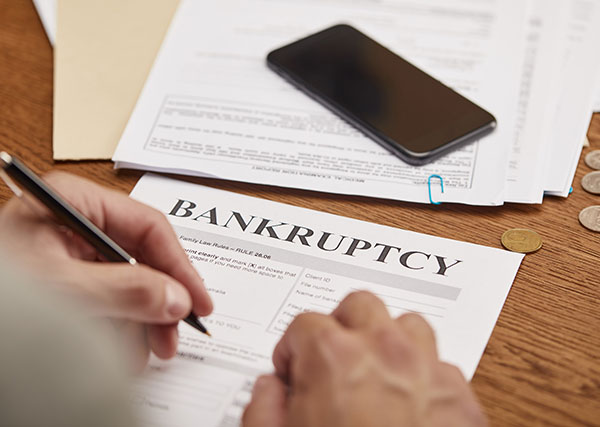Your Lien is Worthless on Tenant Buildouts & Here's Why - Florida Webinar
Learn how lease agreements, public records, and Florida lien laws shape your lien rights.
Last updated:
Nov
27
,
2025
Published:
June 26, 2025
4 mins
Read
Tenant buildouts are essential in commercial construction, allowing businesses to customize leased spaces. However, they pose challenges for lien rights since the work is often authorized by tenants, not property owners. This can weaken the lien’s effectiveness and limit payment security for contractors.
In this webinar presented by SunRay Construction Solutions, and Alex Barthet, Esq., Principal at The Barthet Firm, we’ll break down why liens on tenant buildout work are often unenforceable against the actual property, how to identify and mitigate this risk before starting work, and what legal protections landlords often employ to shield their properties. You will also learn how Florida law governs these situations and what strategic steps contractors can take to better protect themselves.
.jpg)
Why Most Liens on Tenant Buildout Work Are Worthless
In most tenant buildout scenarios, the contracting party is the tenant—not the landlord. Florida lien law limits a lien’s reach to the legal interest of the party that ordered the work. So, if a contractor is hired by a tenant, the lien will only attach to the tenant’s leasehold interest, not the actual property.
This distinction is critical. A leasehold interest is a temporary right to occupy and use property. If the tenant defaults on their lease, files bankruptcy, or walks away from the premises, that leasehold interest may be terminated—effectively erasing the value of the lien. The lienholder, in such a case, has no recourse against the landlord’s ownership of the building or land.
On the other hand, when the property owner contracts directly for work—such as a structural upgrade or renovation of a common area—the lien does attach to the fee simple interest of the real estate. However, this is rarely the case in tenant buildouts, which are typically limited to interior improvements for a specific occupant.
Understanding who you’re contracting with—and what rights they have—is the first step to determining whether a lien will provide meaningful protection.
How to Determine Ownership and Protect Yourself

To safeguard your lien rights, it’s essential to verify the legal owner of the property before work begins. This investigation can be done with minimal effort and can prevent major financial headaches down the road.
Here’s how:
- Visit the County Property Appraiser's Website
Enter the project address and confirm who legally owns the property.
- Compare Ownership with the Party Hiring You
If the party you're contracting with isn’t listed as the property owner, you're likely working for a tenant. This means your lien, if necessary, may only affect a leasehold—not the property itself.
- Review the Notice of Commencement (NOC) with Caution
Many contractors assume that if a landlord signs the NOC, they are involved in and backing the construction. However, landlords may sign NOCs solely to meet local permitting requirements. This signature does not, by itself, create lien rights against the property unless the landlord has authorized the improvements or is directly funding the work.
This due diligence should be part of every contractor’s pre-construction checklist, especially when dealing with commercial interiors or tenant-led projects.
How Landlords Protect Themselves from Liens
Property owners are acutely aware of the risk of tenant-initiated construction projects leading to liens on their real estate. That’s why many leases contain lien prohibitions that explicitly forbid such encumbrances.
Under Florida law, landlords can prevent liens from attaching to their property by doing the following:
- Including a clear lease clause that prohibits liens from tenant-contracted work.
- Recording either the lease or a memorandum of lease in the public records before construction begins.
- Ensuring the recorded document identifies the landlord, the leased property, and the anti-lien language from the lease.
When these steps are followed properly, contractors who perform work at the request of a tenant will be unable to lien the property, regardless of whether they were aware of the recorded lease.
Because these filings are public record, contractors must search the local courthouse or official records to determine whether such a document has been recorded. Failing to do so leaves contractors exposed to the risk of pursuing a lien that has no enforceable value.
Are Some Leasehold Liens Worth More Than Others?
Not all tenant situations are created equal. The value of a lien on a tenant’s leasehold depends heavily on who the tenant is and how likely they are to maintain their occupancy.
If a contractor is working for a national chain retailer or well-established tenant with significant capital investment in the space, there’s a higher chance that a lien—even one limited to the leasehold—may carry negotiating weight. These tenants typically prioritize reputation and continuity of operations and are more inclined to settle disputes quickly.
However, if the tenant is a new business, startup, or undercapitalized entity, the lien has far less leverage. If such a tenant walks away from the lease or is evicted, the contractor is left holding a lien against a non-existent interest, with little chance of recovery.
This makes it essential to evaluate the tenant’s business profile as part of your credit and risk assessment process before agreeing to perform work.
.jpg)
Florida Statute 713.10 Explained
Florida Statute 713.10 is the governing law that outlines how landlords can prevent liens from attaching to their property due to tenant improvements. The statute provides a framework for landlords to record specific documents that, when properly executed, put contractors and suppliers on notice that their lien rights may be limited.
The statute requires -
- A recorded lease or memorandum of lease prior to the commencement of the work.
- The recorded document must clearly prohibit the tenant from allowing liens to attach to the property.
- This record must be available to the public, giving third parties the ability to review and understand the limitations.
Contractors, subcontractors, and suppliers must make reviewing these records a standard part of their pre-construction process. Overlooking this step can result in wasted time, legal fees, and uncollectable debts.
Key Takeaway
Tenant buildout work may seem straightforward, but the legal and financial risks tied to lien rights make it anything but. Assuming your lien will automatically protect you can lead to costly missteps—especially when you’re contracting with a party that doesn’t own the real estate.
Understanding who owns the property, researching public records, and evaluating tenant strength and lease terms are all essential steps in protecting your business. By identifying risks early and adjusting your contract strategy accordingly, you can avoid finding out too late that your lien isn’t worth the paper it’s printed on.
To better understand your lien rights, check out our guides on the Notice to Owner Florida and the Florida Mechanics Lien.
Protect Your Rights with a Notice to Owner
Sending a notice to owner is the first step to secure payment on construction projects. Learn how a notice to owner Florida helps protect your lien rights and ensures you get paid.
Common Questions Contractors Ask on Tenant Buildouts, Liens, and Lease-Related Risks
1. If a landlord is holding a tenant’s security deposit and we foreclose on the lease, can we make a claim on that deposit?
Yes, but in practice, it’s highly unlikely you’ll recover anything from the tenant’s security deposit. Landlords almost always apply the deposit toward their own damages when the tenant defaults on the lease. By the time foreclosure or other legal actions occur, the deposit is usually already consumed by unpaid rent, repairs, or other landlord claims.
2. If a landlord provides a lien prohibition clause after a Notice to Owner (NTO) is sent, but it was never recorded, is that clause enforceable?
No. For a lien prohibition clause to be legally effective under Florida law, the landlord must take two steps:
- Include the prohibition language in the lease.
- Record either the lease or a memorandum of lease in the public records before work begins.
If the clause wasn’t recorded prior to the start of construction, it does not prevent liens from attaching to the property.
3. What if the property is sold and I haven’t been paid yet? Will the new owner benefit from my work without paying me?
If you recorded your lien before the sale, you’re protected. The lien follows the property, not the owner. That means the new owner takes title subject to your lien.
During a typical real estate closing, all liens are usually addressed—either paid off or resolved—because title insurance won’t be issued otherwise. If you haven’t yet recorded a lien but still have time, you should do so immediately to secure your position.
4. We had a contract with a tenant, and they vacated the property suddenly without paying. What recourse do we have?
You may still have legal options, but they are limited:
- You can likely record a lien, but it would only attach to the leasehold interest—which may now be worthless if the tenant has been evicted or abandoned the lease.
- You can pursue a breach of contract claim against the tenant, but collecting on it depends on whether they have assets or are still in business.
If a tenant leaves unexpectedly and appears insolvent, the chances of recovering payment are significantly reduced.
5. If the lease contains a recorded lien prohibition but we were hired directly by the landlord, can we still lien the property?
Yes. If the landlord is your customer—regardless of any lien restrictions in the tenant’s lease—you can file a lien against the property.
For example, if you’re hired by a property owner to re-roof a shopping center, install HVAC systems, or renovate a specific unit, your lien will attach to the entire property, not just the leasehold, because the owner authorized the work.
Sunray Construction Solutions offers professional "Notice to Owner Florida" services to help you secure your mechanics lien florida rights in the construction industry. Looking for a free Notice to Owner form in Florida? Get your free, editable "Florida Notice to Owner Template" today for easy and accurate preparation.












